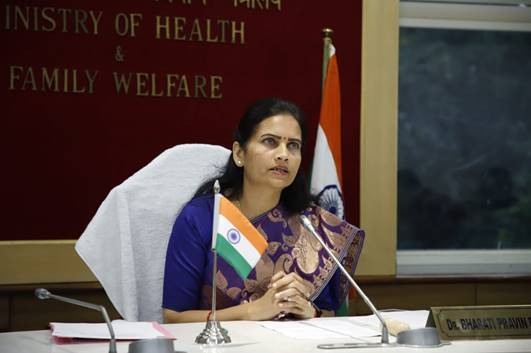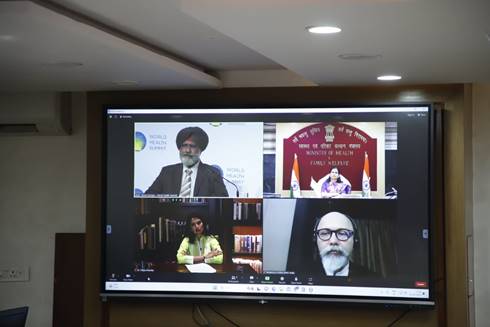Dr. Bharati Pravin Pawar outlines India’s proactive approach in addressing Non-Communicable Diseases (NCDs) during the World Health Summit 2023.

Dr. Bharati Pravin Pawar, Union Minister of State for Health and Family Welfare, delivered a keynote address at the World Health Summit 2023, emphasizing India’s commitment to combat Non-Communicable Diseases (NCDs) through a comprehensive approach. The high-level panel discussion focused on the integration of NCD management in primary care, recognizing the urgency of this global health challenge.
Dr. Pawar underscored the importance of a multi-faceted strategy encompassing preventive measures, early detection, and efficient management to reduce the prevalence and impact of NCDs on the populace. She stated, “India firmly emphasizes the need for a comprehensive strategy which includes preventive measures, early discussion and efficient management with the aim of reducing the prevalence and impact of NCDs on the well-being of our citizens”.
One of the key initiatives highlighted was the “75/25 initiative,” a bold endeavor aimed at screening and providing standard care for 75 million individuals with hypertension and diabetes by 2025. This initiative represents a milestone in the global expansion of NCD management within primary healthcare.
Dr. Pawar acknowledged the tangible efforts made by India to improve critical social indicators like life expectancy and maternal mortality rates. Notably, the Outcome Budget for 2023-2024 includes hypertension and diabetes treatment as output indicators for the first time, showcasing the government’s dedication to expanding services in this area.

The Union Minister also recalled the launch of the National Programme for Prevention and Control of Non-Communicable Diseases (NP-NCD) in 2010, which sought to strengthen various aspects of NCD management, including infrastructure, human resources, and health promotion. She highlighted the alignment of these efforts with the Ayushman Bharat initiative, illustrating India’s commitment to achieving Universal Health Coverage (UHC) and Sustainable Development Goals (SDGs).
Dr. Pawar elaborated on the Population-Based Screening (PBS) program, operating under the Comprehensive Primary Health Care (CPHC) umbrella. This program targets individuals aged 30 and above for risk assessment and screening of common NCDs, including hypertension, diabetes, oral cancer, breast cancer, and cervical cancer. The services are delivered through trained frontline health workers, ensuring continuity of care across all levels of healthcare.
Furthermore, she emphasized the role of technology in revolutionizing healthcare delivery, particularly in the realm of NCD prevention and control. The National NCD portal serves as a vital tool for screening, managing, and reporting on common NCDs. It also facilitates the creation of a Single Longitudinal Health Record for every individual, ensuring seamless care coordination through a Unique Health ID.
Dr. Bharati Pravin Pawar concluded her address by reaffirming India’s unwavering commitment to combating NCDs. She called for global collaboration in the face of this shared challenge, highlighting the interconnectedness of global health and advocating for a united approach to address the complexities posed by NCDs.
















